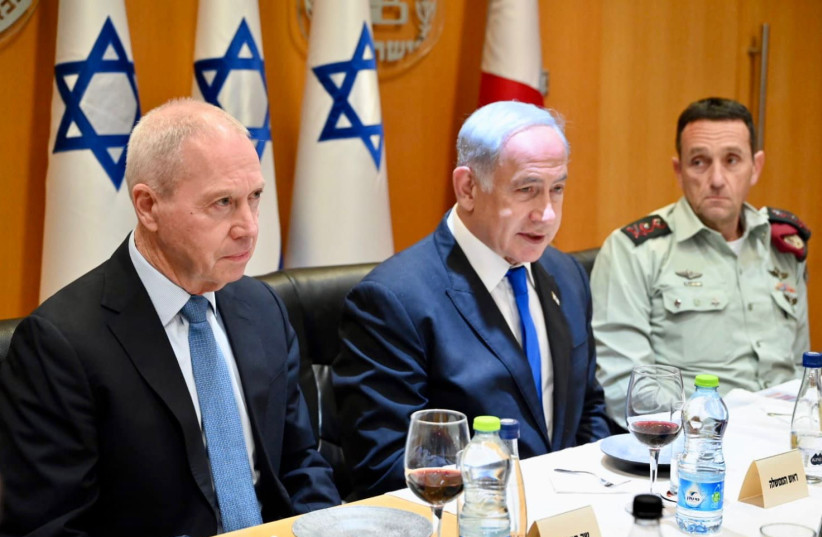In December, back when the protests in Iran were still rocking the country, there were some Israeli officials who pushed for the government in Jerusalem to take a more proactive approach. Launch an economic campaign and cyberattacks against Iran, these officials argued. The moves, they said, would help speed up the collapse of the regime.
The government made a principled decision to stay out. What was happening in Iran, the cabinet decided, was one of those unique opportunities to not do anything, and instead wait to see whether Iran would implode on its own.
It is worth thinking about this debate since – while the Iranian regime is still going strong – it is safe to assume that similar conversations have been taking place in Tehran, Gaza, Beirut, Damascus and other parts of the Middle East in recent months, as Israel appeared to be on the brink of imploding over Prime Minister Benjamin Netanyahu’s judicial overhaul.
Khamenei rubbing his hands
It is easy to imagine Ayatollah Ali Khamenei sitting in the Beit-e Rahbari – his official residence and office in central Tehran – watching the protests in Tel Aviv and Jerusalem on TV and rubbing his hands in delight. Khamenei would be justified in thinking that Iran does not have to do anything right now. All it needs is to sit back and let Israel do the job on its own.
Now imagine that Khamenei hears that Netanyahu fired Defense Minister Yoav Gallant and that 10 days later he has yet to officially reinstate him (while Gallant was sacked by phone, he never received an official dismissal letter, keeping him in a state of limbo and uncertainty).

Could that explain why Iran sent a drone into Israel on Sunday from Syria? Is it possible that the lack of an Israeli response to the infiltration of a Lebanese terrorist armed with multiple explosive devices a few weeks earlier also contributed to Iran’s feeling that it could get away with another attack? Is it possible that Iran believes Israel is vulnerable and exposed?
And despite all of this, Netanyahu has not pulled back the threat of dismissing Gallant. All he did was issue a statement on Monday that he was postponing the final decision, sending a message to the country, the IDF and Israel’s enemies that the current defense minister was just there in title and even that might be temporary. Basically, Gallant became something like a dead defense minister walking.
What kind of message was Netanyahu trying to convey, for example, when he made a toast at a meeting of the General Staff on Tuesday, mentioning Chief of Staff Lt.-Gen. Herzi Halevi but not Gallant? How are the generals who sat around the long table at the Kirya supposed to view their defense minister and what will they do the next time he gives them an order?
This situation doesn't make sense
THIS IS a dangerous situation that does not make sense when considering that Netanyahu knows the threats Israel faces. He is aware of the bombings that the Air Force has reportedly carried out in Syria in the last couple of weeks – he would have needed to approve them – and he saw the video of the drone that was flying over the Gaza Strip. He knows of the tension in Jerusalem and the West Bank and the terrorist attack that took place on Tuesday near Rishon Lezion. How does having a defense minister in limbo help improve Israel’s safety and security? What kind of message does this situation send to our adversaries?
This is without even getting into the message that this situation sends to the IDF chain of command which is already grappling with the threat of disobedience, prompted by the judicial overhaul. It was this fear of disobedience that pushed Gallant – who said that he supports the principle of judicial reform – to speak out and call for a stop to the legislation.
Israel is not the kind of country that has the luxury to not have a stable defense minister and instead someone whose future in the role is under a cloud of uncertainty. The country has too many threats and challenges that require constant management, and having a defense minister in the role is part of the way Israel sends a message, that it is prepared to meet those challenges no matter the front they might present themselves.
That is not the case right now in Israel and it should have us concerned. The situation is ripe to be taken advantage of by Israel’s enemies. This is a time for vigilance.
